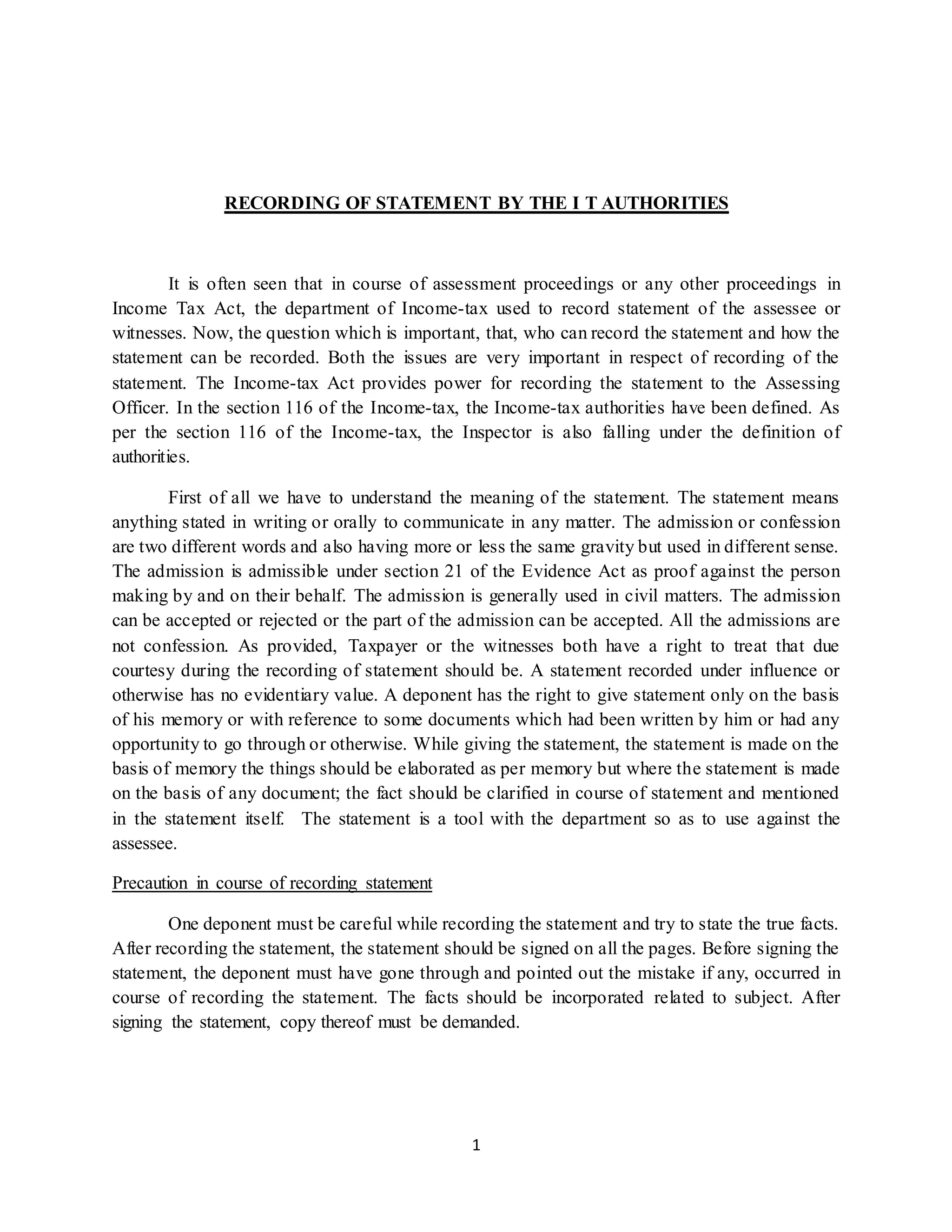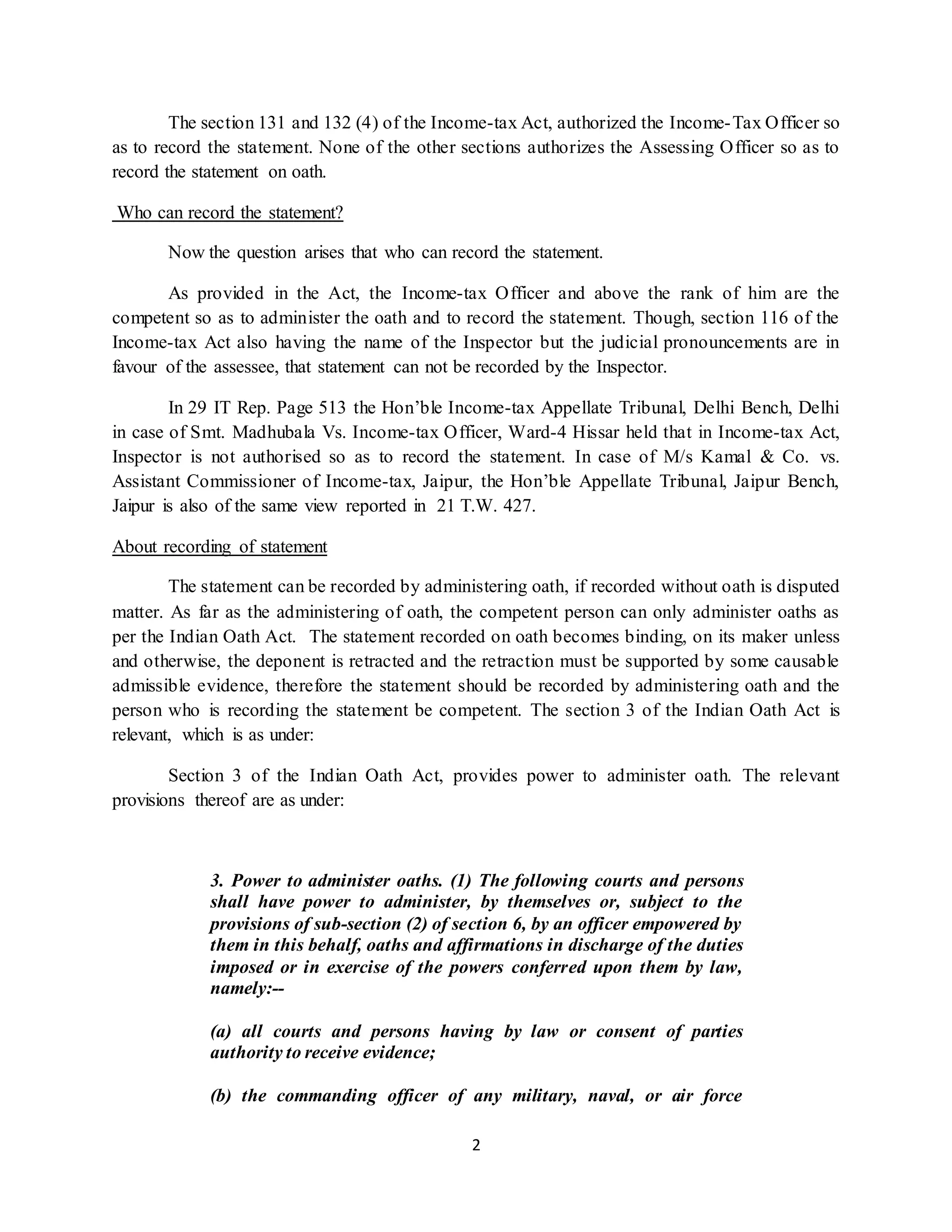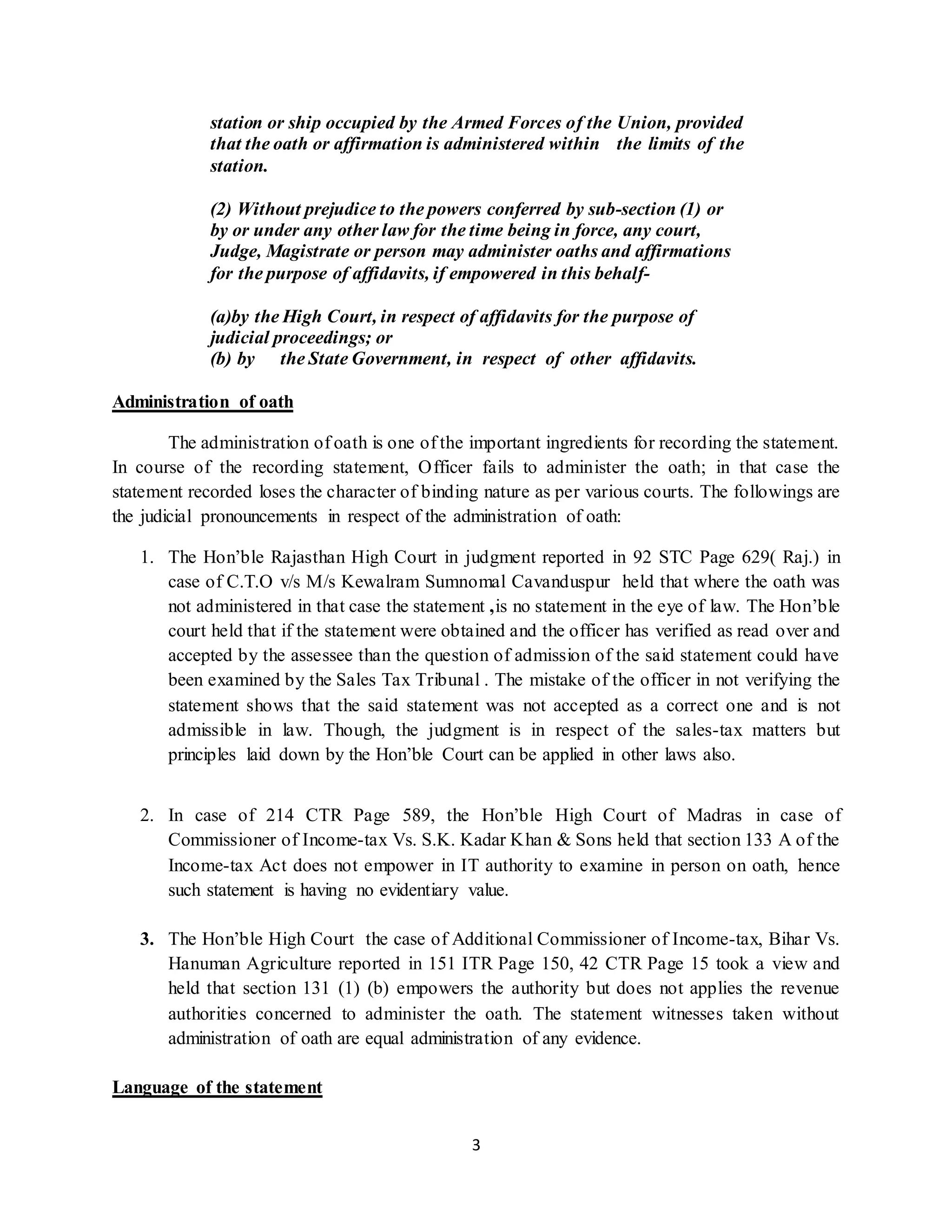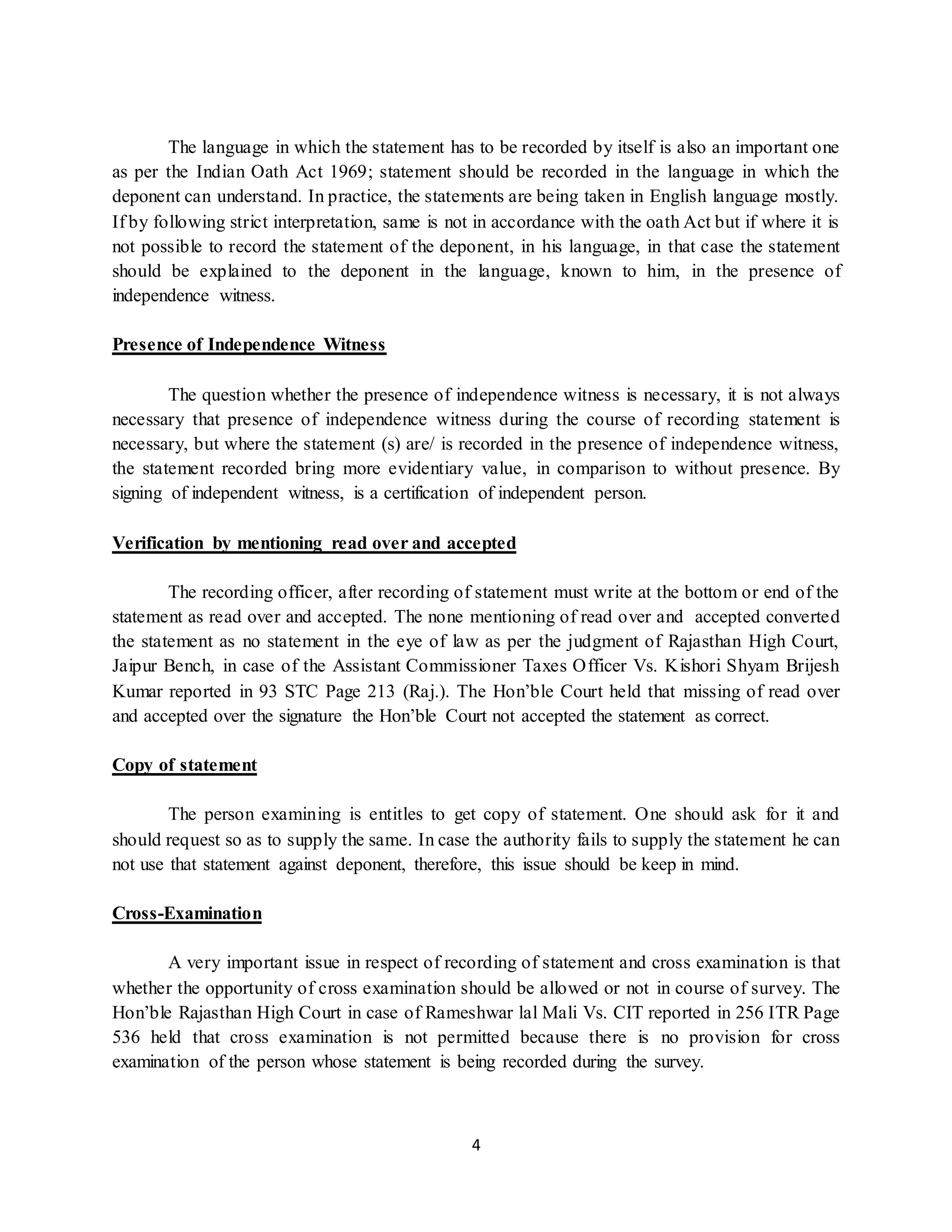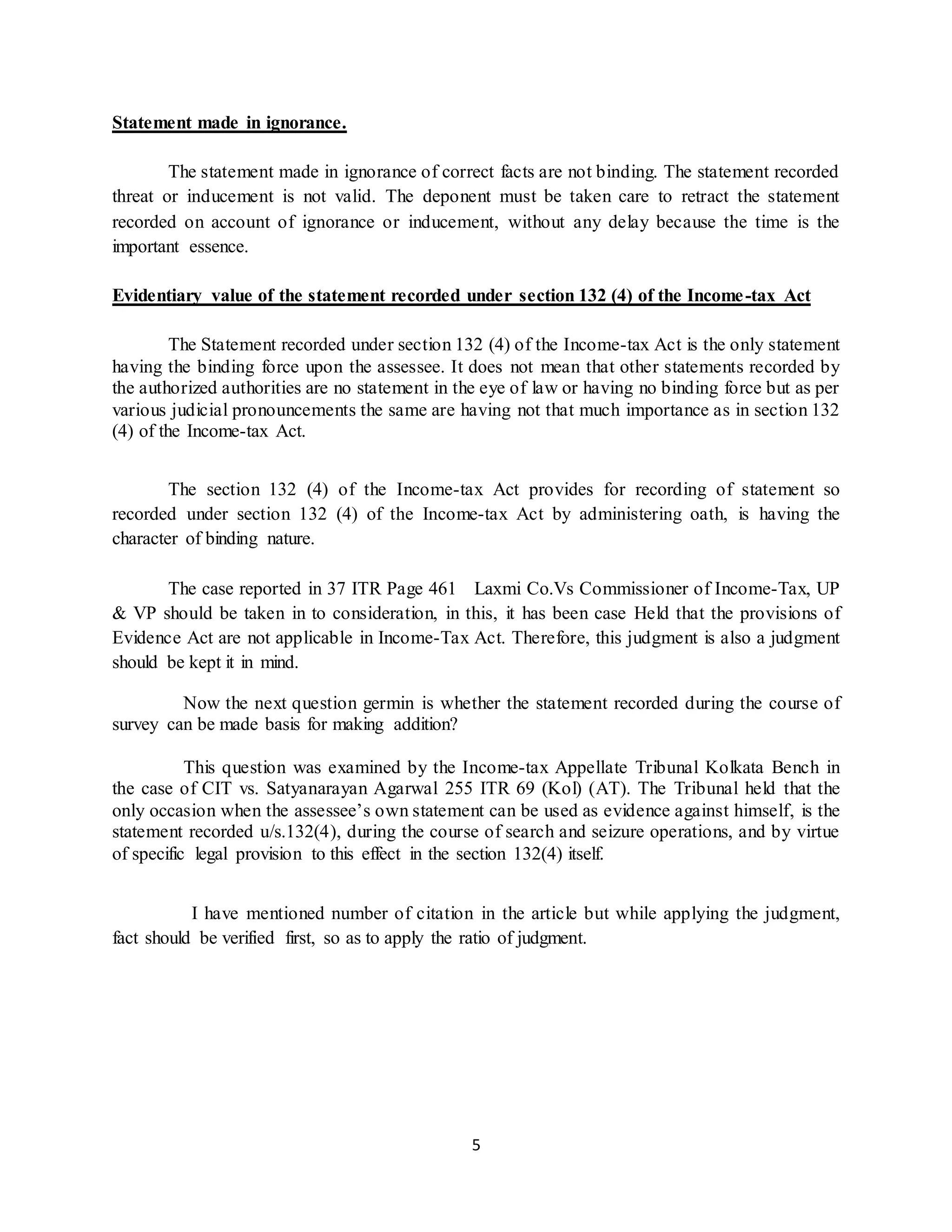The document discusses the recording of statements by Income Tax authorities in India. It outlines that the Income Tax Officer and those of higher rank are authorized to administer oaths and record statements. Inspectors are not authorized to record statements alone. Statements must be recorded in a language the deponent understands and should be read back and confirmed. Uncoerced statements recorded under oath, especially those under section 132(4), can be used as evidence against the deponent. However, statements taken without proper procedure or under threat may have no evidentiary value.
